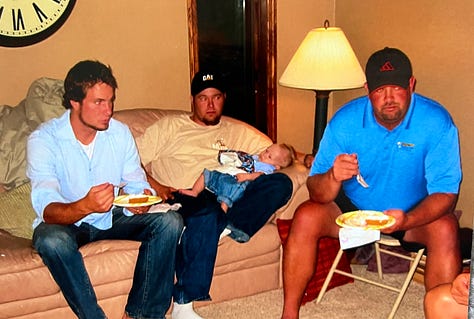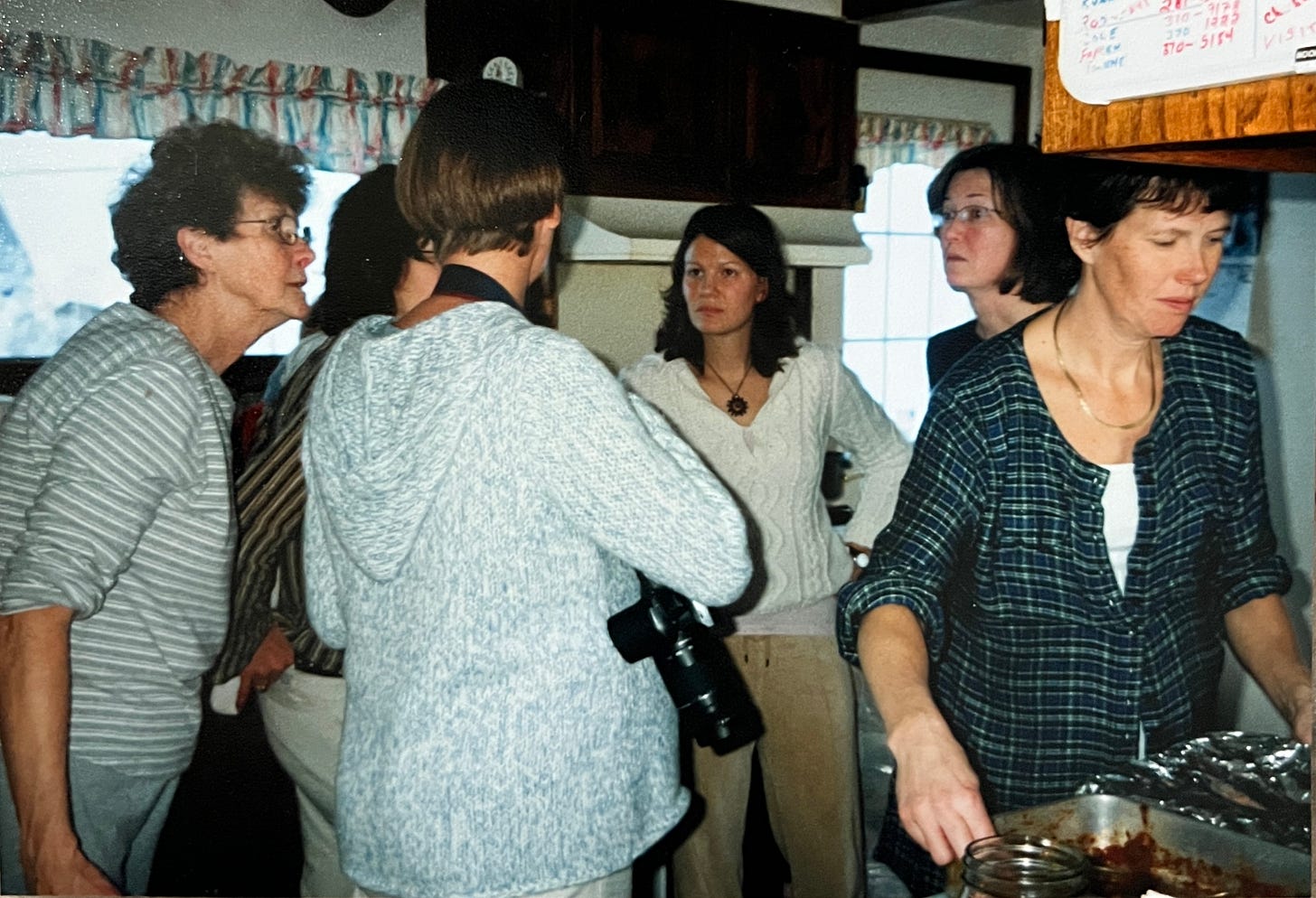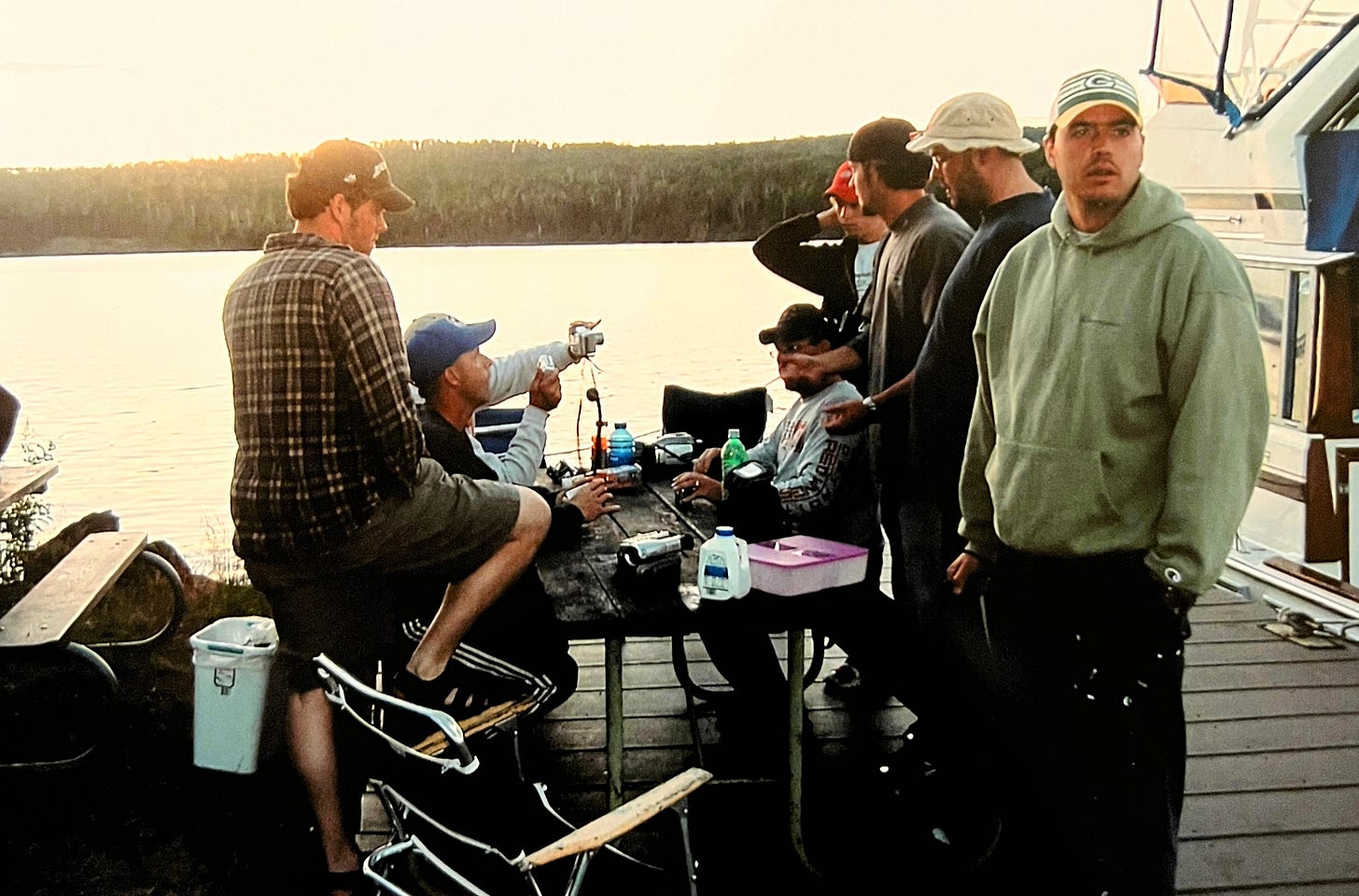On Perception and Assumptions
Navigating rural America, talking politics, and not arguing—even in an election year
It’s been quite the year on a lot of levels. Personally, reconnecting and reestablishing relationships with my extended family has been so rewarding it’s hard to put into words—but hopefully not impossible because I have a frickin’ book to write.
When talking to my uncles, I’ve realized that a big piece of my approach has been about leaving my assumptions at the door. Whether it’s religion, politics, or my uncle’s perception of me, I’ve tried my best to be open-minded and not carry any preconceived notions into our conversations.
And it’s worked out pretty damn well. I’m routinely surprised at their thoughts, opinions, and depth. And I’ve had uncles tell me they were surprised at how I saw the world, that I’m not quite a standard hippy millennial, pushy vegan, or an atheist.
And it’s cool to hear that we all might have been going in with various assumptions about the other and walked away pleasantly surprised.
Of course, it’s a human thing to know a bit about someone and fill in the gaps with some presumptions. We do it all the time. If we see someone wearing a weathered Carhartt jacket, driving a Prius, or covered in tattoos, we instinctively assume they’re this type of person or that. While wearing an old work jacket, driving an eco-friendly vehicle, and enjoying body art do say something about the person, none of that gives the full picture. I’ve said it before and I’ll say it again: we all contain multitudes.
That’s something I believe more and more as I age. And I try my best to be humble and stay open to those surprises, which is why I think I’m able to effortlessly hang out with my many uncles.
Due to that humility, despite our real or perceived differences, I’ve had zero heated arguments with my uncles this year. Not one—even in an election year. We’ve disagreed on things, but it was always cordial and usually fun discourse.
Younger me probably wouldn’t have been able to do that. It took me years of reading, study, and life experience to get to a place where I don’t need to convince anyone to see the world my way and importantly, to be open to being wrong.
I’ve said since the very first post that a goal of mine is to be an example of respectful dialogue in a divided America.
And that simple objective inevitably means that 18 Uncles has had a political undercurrent since the beginning, although I’ve been hesitant to go in that direction because the nation is so damn charged at the moment.
While living in Europe, I remember seeing on the news and social media the riots in Ferguson, Trump taking the White House, and the BLM protests. Sitting an ocean away, it felt like my home country was a tinder box drifting off a cliff.
And I often wondered if there was anything I could do to help.
You won’t catch me running for office anytime soon. Nor am I about to start some sort of movement. So, I figured the best thing I could do would be to return to rural America, reconnect with the family, see what I could learn, and see what kind of larger themes emerge that would resonate with others.
Because it’s clear to everyone that our country is in a weird and difficult place. The tension is palpable, the polarization visible. It’s a two-party system that has bifurcated, vomiting up ever-more unpopular candidates every four years. And too many regular citizens seem to have chosen “a team” and are making assumptions about “the other.” If someone is wearing a mask, we think we know all their politics and beliefs. If they’re flying the stars and stripes on their front porch, we believe we know how they’re going to vote in November. There’s a lot of black-and-white thinking in a world of gray, and a lot of with-us-or-against-us rhetoric with people we need to share a community with.
It took me an embarrassingly long time to see the issues with the country were a lot deeper than rural Americans or big city liberals, red or blue voters, Democrats or Republicans. But once I could see that, it frustrated me how rural America was portrayed in the media. If I only watched MSNBC, I’d be left with the impression that my uncles are “the problem” with the country. And I knew that wasn’t true. I might disagree with them on stuff, but they’re far from the problem.
Conversely, if one thinks that associate professors at liberal arts colleges earning $35k a year are “the problem” with America, I think they’re also misinformed.
The divisions, largely driven by the media, are quite troubling. However, a positive note in my experience, is that when people are face-to-face, we’re usually much more understanding and accepting.
That’s about all I want to say about the current state of affairs. It all demands many more words than I can share here now or in 18 Uncles in general. I don’t think too many on this platform are interested in my political analysis, foreign policy critiques, or perspective on our free market fundamentalism.
It’s an election year. Tensions are high. It’s easy to score points with half the country by bashing one side of the aisle, but at the same time, you tend to alienate and upset the other half. I’m trying to bring people together and won’t be swimming in that partisan soup.
I guess my only ask is that people leave their assumptions at the door. Leave room for being surprised. We might know a bit about our family members or neighbors, but we probably don’t know all of their beliefs.
We probably don’t know what trials they’ve gone through that led them to see the world the way that they do.
And them seeing the world differently than we do doesn’t make them ‘the problem with this country.’












